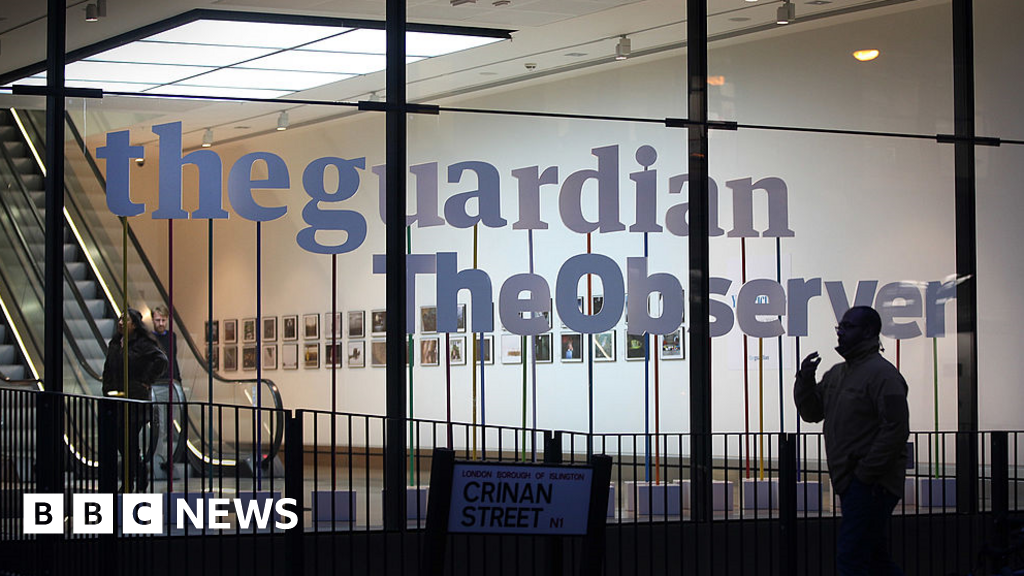The numbers are clear. The temporary ceasefire between Israel and Hamas in November last year resulted in the release of 109 hostages. Compare that to Israeli military operations, which have managed to rescue 8 hostages while killing three by accident. The military has also recovered the bodies of another 34 hostages, including six killed shortly before the Israelis made it to the underground tunnel where they were being held. Meanwhile, 33 hostages are presumed dead.
By the most conservative accounting, ceasefire tactics have been more effective than military tactics by a factor of 10 in saving Israeli lives.
In starting this most recent war in Gaza, Israeli Prime Minister Benjamin Netanyahu no doubt was remembering his brother, who led the daring rescue of hijacked passengers at the Entebbe airport in 1976 (and died in the process). Now the younger Netanyahu was facing his own hostage crisis. He decided, like his brother, to pursue force. He entertained fantasies of destroying Hamas, saving the 251 people kidnapped on October 7, and salvaging his own dismal political reputation.
It hasn’t worked out quite that way. The war hasn’t eliminated Hamas, and even the Israeli military cautions that this isn’t possible. The Israeli military has been spectacularly unsuccessful — and in some cases unforgivably negligent — in freeing hostages. Speaking of unforgivable, Israeli forces have also killed nearly 42,000 Palestinians in Gaza. The Netanyahu government has escalated its policy of expulsion in the West Bank and is now poised to go to war with Hezbollah in Lebanon. The recent coordinated explosions of the pagers that the Iran-backed militia purchased to avoid Israeli surveillance, followed by a second set of explosions involving walkie-talkies, could well be the starting gun for the war.
Despite (or perhaps because of) these horrors, Netanyahu is making a political comeback. Although his coalition would lose against the opposition if an election were held today, the prime minister’s Likud Party remains by a thin margin the most popular party in Israel today.
In other words, Netanyahu has some reason to believe that he has a winning strategy: talk tough, be tough, hang tough. He thinks that he can safely ignore the pleas of the hostages’ families, the demands of the demonstrators on the street, and the advice of his own military advisors — not to mention anything that the US government has said. The Israeli prime minister has dismissed evidence that the failures of his own intelligence agencies played a role in the events of October 7. As long as he visits punishment upon Israel’s enemies — Palestinians, Hezbollah in Lebanon, selected targets in Iran — he can secure the support of the Israeli far right and continue to present himself as his country’s savior.
As such, Netanyahu believes that he has two more enemies to fight against: compromise and ceasefire.
Thus, each time Israeli and Palestinian negotiators seem close to a negotiated ceasefire, Netanyahu has pulled the rug out from underneath them. So, for instance, Hamas withdrew its initial insistence on Israel committing to a permanent ceasefire from the beginning. As for the withdrawal of all Israeli forces from Gaza, another key element of the three-part plan put forward by US President Joe Biden’s administration, Netanyahu is now insisting that Israel retain control of the Philadelphi corridor, the section of Gaza that borders Egypt, in order to interdict any potential weapons shipments to Hamas.
This apparently non-negotiable demand from Netanyahu does not reflect any real consideration of Israeli security needs. The New York Times columnist Thomas Friedman, not exactly the most pro-Palestinian voice in journalism, points out that the Israeli military did not consider this supposedly indispensable corridor
important enough to even occupy for the first seven months of the war. Israeli generals have consistently told Netanyahu there are many alternative effective means for controlling the corridor now and that supporting Israeli troops marooned out there would be difficult and dangerous. And they could retake it any time they need. Staying there is already causing huge problems with the Egyptians, too.
Netanyahu’s own defense minister, Yoav Gallant, has reportedly said that “the fact that we prioritize the Philadelphi Corridor at the cost of the lives of the hostages is a moral disgrace.”
So, if his own defense minister can’t change Netanyahu’s mind, what can be done to dislodge the prime minister from his unyielding position?
Cutting off the arms supply
Since the Labour Party took over in the United Kingdom in July, it has made three consequential decisions related to Israel/Palestine. First, it resumed funding for the UN agency that aids Palestinian refugees. Next, it reversed the Tory decision to challenge the International Criminal Court’s arrest warrant for Netanyahu.
And, at the beginning of September, it blocked a certain number of arms sales to Israel. Not surprisingly, Netanyahu condemned the decision as “shameful” and “misguided.”
In fact, the UK’s move was both tepid and not hugely important. The decision affected only 30 out of 350 export licenses. And Britain supplies just 1% of Israeli imports.
Netanyahu wasn’t worried so much about the UK weapons per se but rather the domino effect the decision might have on the three biggest suppliers of the Israeli military. Between 2013 and 2023, the United States provided around 65% of the country’s military imports, Germany roughly 30%, and Italy a bit under 5%.
Italy claims that it has basically stopped arms exports, only honoring existing contracts if they don’t involve the use of those weapons against civilians (no one really knows how the Italians are making this determination). German Chancellor Olaf Scholz has made a great show of pledging military support for Israel, but the country’s Federal Security Council has effectively stopped providing the promised assistance. “Ultimately, the growing concerns [against Israel] are the reason why fewer approvals are being granted, even if no one wants to say it out loud,” an employee of a representative on the Federal Security Council told The Jerusalem Post.
Which leaves the United States. The Biden administration announced $20 billion in weapons sales to Israel in mid-August, after ordering a pause in deliveries of heavy bombs (subsequently reversed) and threatening to cancel shipments if Israel invaded Rafah (it did and the US did nothing).
The weapons that the United States delivers to Israel are its only real leverage over the Netanyahu government. It could be argued that this doesn’t amount to much leverage, particularly when Israel isn’t asking for as much these days. Also, Israel has its own military-industrial complex and can produce a lot of what it uses. Still, the nearly $4 billion that the United States sends Israel every year is a significant chunk of the Israeli military budget ($27 billion and rising). And that should translate into political capital that an American administration could use to influence Israeli policy.
But Biden did not condition aid on Netanyahu signing a ceasefire deal. Talk about a non-transactional president!
Lest anyone imagine that Donald Trump would do any different if he returned to the White House, the infamously transactional candidate suspended that particular aspect of his character when dealing with Israel. During his four years in office, he gave Israel everything it wanted and got nothing in return (other than the adulation of Netanyahu and the Israeli far right).
What can be done?
Israel’s conduct of the war in Gaza has generated considerable international condemnation. The UN’s highest court, the International Court of Justice, ruled in July that Israel’s occupation of Palestinian territory is illegal and must end. The International Criminal Court, meanwhile, has issued an arrest warrant for Benjamin Netanyahu (along with Defense Minister Gallant and three Hamas leaders, two of whom have already been killed).
The UN Security Council has approved several ceasefire resolutions, including one that called for a Ramadan pause, which was ignored. In June, the Security Council passed a resolution introduced by the United States that supports (not surprisingly) the three-part ceasefire plan devised by the Biden administration. Netanyahu has so far ignored this one as well.
Plenty of countries have registered their protests against Israel in other forms. Several European countries — Norway, Ireland, Spain, and Slovenia — recently went ahead and recognized an independent Palestinian state. They join 143 other countries around the world that have already made that decision.
Turkey has executed an about-face from being a key Israeli trade partner to a leader of the economic boycott of the country. Now, Turkish leader Recep Tayyip Erdogan is threatening to assemble a Sunni coalition, along with Egypt, in support of the Palestinians.
People around the world have voted with their feet by joining protests. In the days following the October 7 attack and the start of the war in Gaza, there were thousands of pro-Palestinian gatherings in dozens of countries. Demonstrations spread on campuses, particularly in the United States and Europe but also in Australia and India.
Meanwhile, in Israel, sentiment has shifted. A week ago, half a million people thronged the streets of Tel Aviv, with 250,000 rallying in other Israeli cities, demanding an immediate ceasefire. The overriding issue in Israel is the release of the remaining hostages. Interestingly, polling for the first time shows that a majority of Gazans now believe that the Hamas attack on October 7 was a mistake. This is a marked reversal from the early days of the war, when both Israelis and Palestinians were convinced that the military actions of their political representatives were correct.
So, at this point, it’s not a question of persuading the people of Israel and Palestine of the importance of negotiations or the need for a ceasefire. The machinery of international law has been mobilized to put pressure on the Israeli government. The country most committed to Israel’s military defense, the United States, has also been pushing for a ceasefire.
The problem is that the Biden administration has not used its most powerful levers of influence — the flow of cash and armaments to Israel — to persuade Netanyahu to bend. The Israeli leader and his right-wing allies listen to the American voices they want to hear — the Republican Party, the American Israel Public Affairs Committee — and ignore what they consider to be a lame-duck administration. Netanyahu would no doubt prefer Donald Trump to win in November. But even if Kamala Harris wins, he doesn’t worry that the Democrats will make any significant changes in US policy, especially if the Republicans manage to win the Senate.
If anything, Netanyahu is moving even further away from compromise. Israel has ramped up operations in the West Bank in the furtherance of its campaign of ethnic cleansing. The Israeli army is preparing for a sustained military campaign against Hezbollah, which is now mulling a response to the two recent waves of bomb attacks — pagers, walkie-talkies — that were the result of an Israeli operation to insert explosive devices in the devices somewhere along the supply chain.
According to the most pessimistic analysis, Israel will eventually settle for a ceasefire in Gaza in order to turn its attention more fully to the West Bank and Hezbollah. Achieving a ceasefire and a hostage deal would also remove the chief obstacle to a national unity government that would give Netanyahu the political cover for these expanded operations.
So, calling for a ceasefire in Gaza is necessary but not sufficient. The Biden administration must attach strings to Israeli aid related to the country’s overall policies of expulsion. Time is running out. Biden must back Palestinian demands for political autonomy before Israel has occupied all Palestinian land. He must push for regional negotiations that address the essential conflict between Israel and Iran that lies behind the dispute with Hezbollah.
It’s not likely that the administration will push anything so ambitious before the election. But when Biden enters his lame-duck period, he will have one last chance to back a ceasefire-plus scenario. He can even shoehorn this effort into the “Abrahamic Accords,” the Trump-era initiative to negotiate the Arab world’s recognition of Israel.
On November 6, regardless of who wins the election on the day before, Biden needs to withdraw all his political capital from the bank and spend it in the Middle East. Netanyahu and his far-right allies are a threat to Israel, to Palestine, to the entire region. Biden gave an enormous gift to the United States when he stepped aside as a presidential candidate. In his lame-duck session after the election, he can make one final, legacy-making gift by applying just the right combination of carrots and sticks to contain Netanyahu and end the horrors in and around Israel/Palestine.
The views expressed in this article are the author’s own and do not necessarily reflect Fair Observer’s editorial policy.






































































































































You must be logged in to post a comment Login